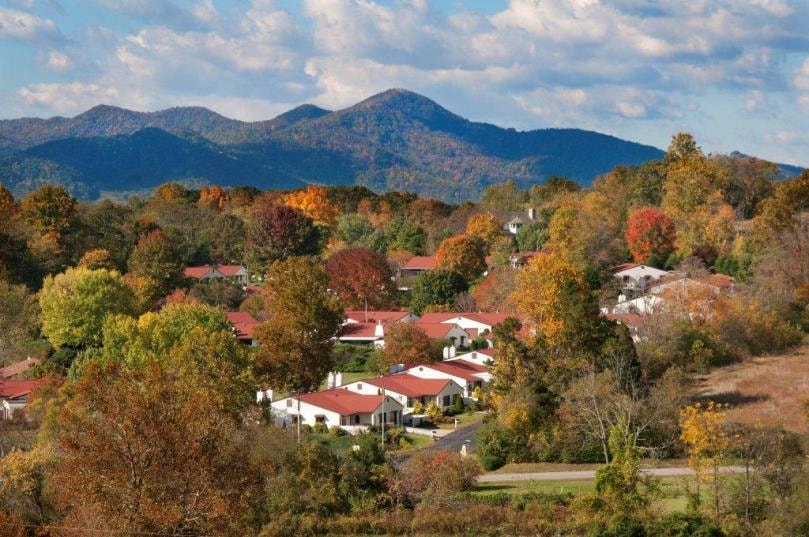Top 5 Best Houses for Retirement: Finding Your Perfect Future Home
Having just gone through the journey of finding my own retirement home in the Asheville area, I know firsthand how…
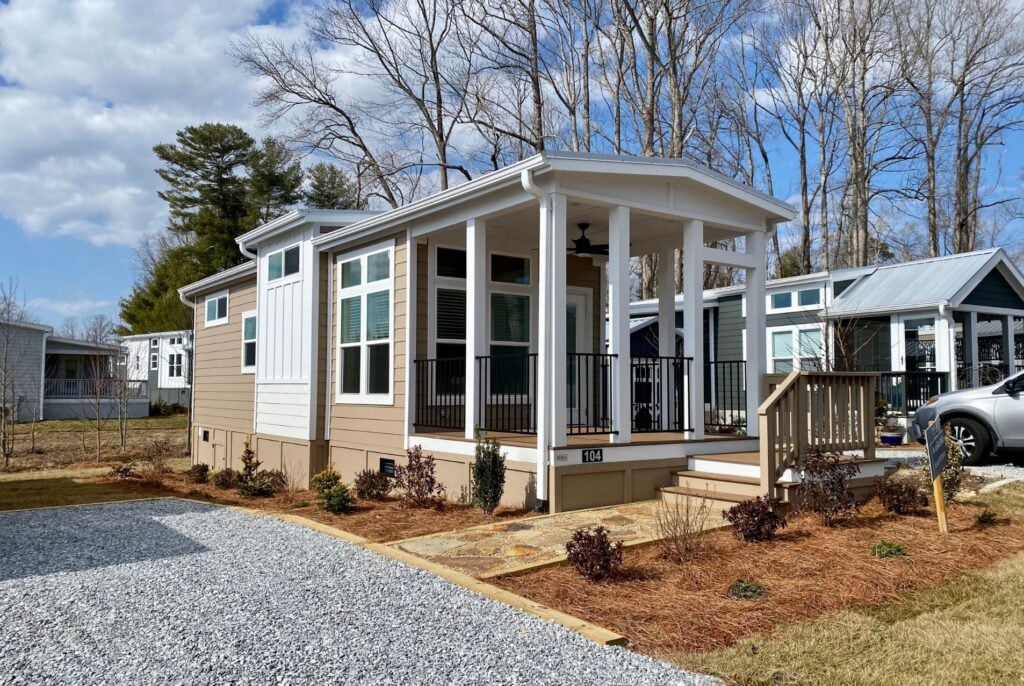
Having just gone through the journey of finding my own retirement home in the Asheville area, I know firsthand how important it is to choose the right place for this next chapter of life. Whether you’re thinking about aging in place, downsizing, or exploring options like condos or active adult communities, finding the right fit can make all the difference. In this article, I’ll walk you through some of the top housing choices for retirement and share insights on the benefits, lifestyle considerations, and financial factors to help you make a confident, informed decision.
Critical Aspects
- Aging in place can be enhanced through home modifications that improve safety and accessibility, allowing seniors to maintain independence in familiar surroundings.
- Downsizing to smaller homes or opting for condos and townhouses can reduce maintenance costs while improving financial stability during retirement.
- Independent living communities and Life Plan Communities provide various housing options that promote social engagement and health services, addressing the diverse needs of retirees.
Aging in Place: Modifying Your Current Home
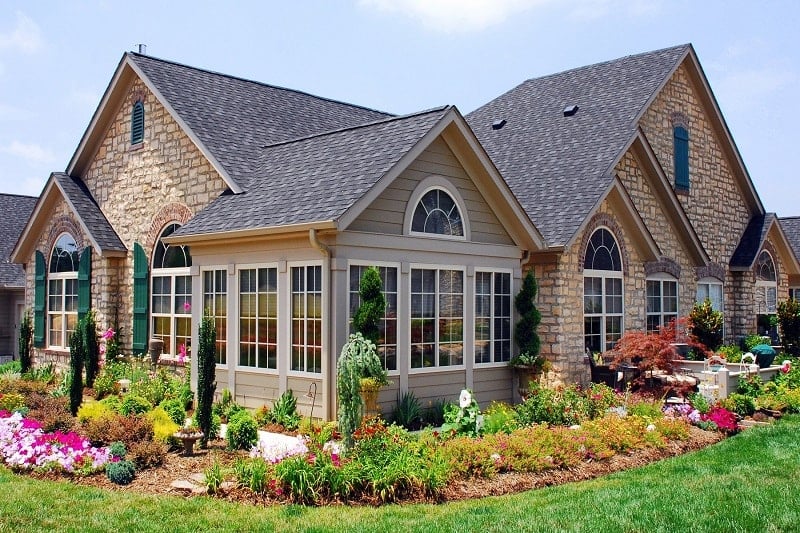
One of the things I’ve come to really appreciate is the idea of aging in place—being able to stay in the home you love while making a few smart changes to keep it safe and comfortable as your needs evolve. There’s something deeply reassuring about staying in familiar surroundings, especially when the home is thoughtfully adapted. For many folks, that might mean adding grab bars in the bathroom, adjusting room layouts to improve flow, or widening doorways to make getting around easier. It’s all about making your home work for you, now and in the years to come.
Relocating the bedroom to the main floor can reduce mobility challenges. Handrails in hallways, staircases, and near kitchen counters offer extra support. Low-impact flooring such as rubber or cork can mitigate fall risks. Together, these changes create a safer living space, fostering independence and peace of mind.
Home assessments and various funding programs often provide financial assistance for these modifications, easing the financial burden and making aging in place more feasible for many seniors. Installing specialized medical alert systems can greatly enhance emergency response.
Downsizing to a Smaller Home
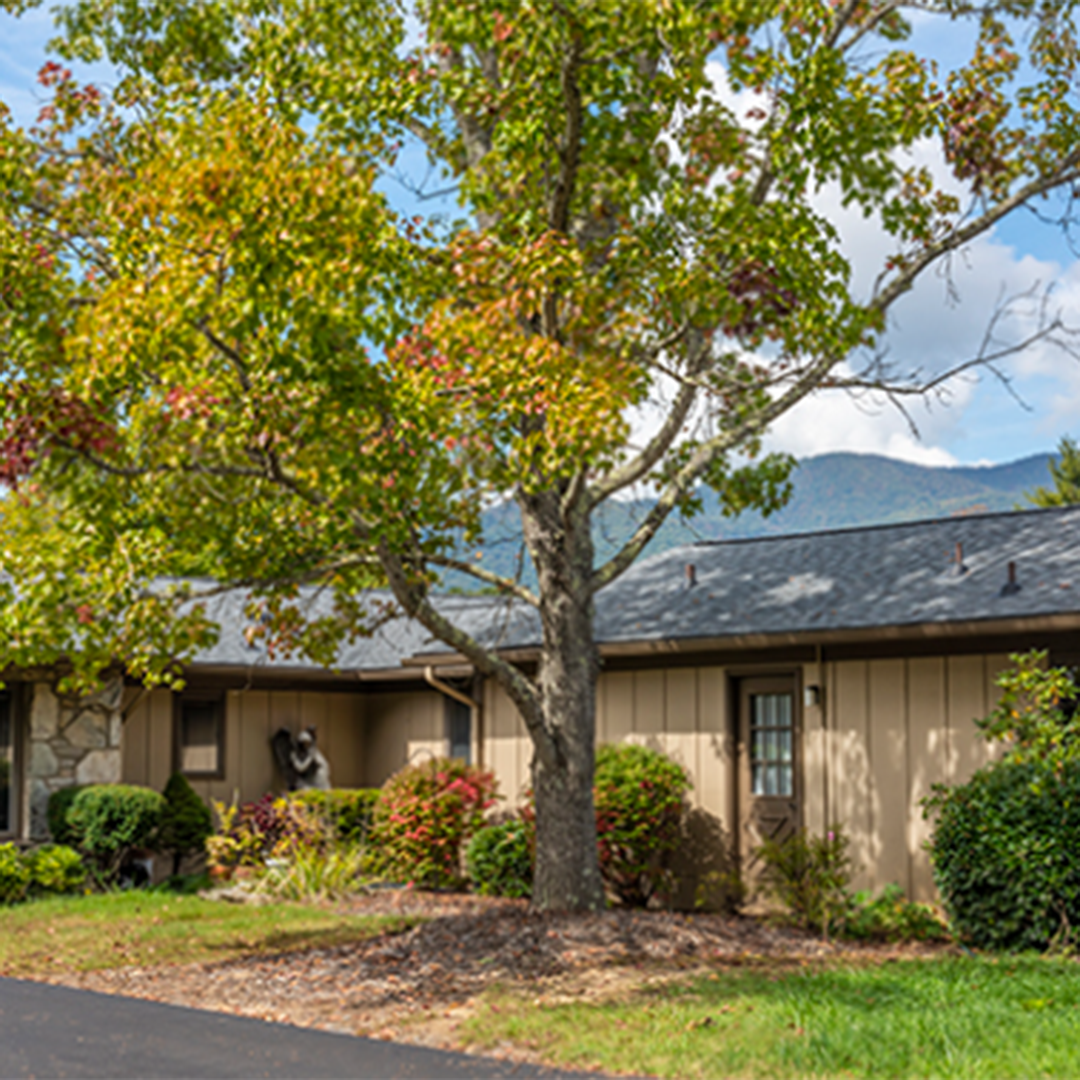
Retiring to a smaller home offers a fresh start and easier navigation. Smaller homes require less upkeep, saving time and money on maintenance, leading to a more relaxed lifestyle.
When I was house hunting in the Asheville area, one of the things at the top of my list was single-level living—and I ended up finding a great ranch-style home that fits just right. Having everything on one floor really makes day-to-day life easier, especially as we think long-term about comfort and mobility.
These kinds of homes are popular with retirees for a reason—they cut out the hassle of stairs and make things like cleaning, cooking, and moving around so much simpler. Plus, smaller homes often come with a friendlier price tag, which can mean a bigger down payment and more manageable monthly expenses.
Downsizing offers financial benefits, including lower mortgage payments and property taxes, allowing retirees to save significantly and enhance their retirement living or invest elsewhere.
Embracing Condo Living
Condos offer low-maintenance living, often in urban locations like Asheville, North Carolina. Many complexes include amenities like pools, gyms, and gated security. These features enhance quality of life and promote an active, healthy lifestyle.
Condos provide social engagement opportunities and relieve residents of maintenance duties, freeing up leisure time. This lifestyle suits those who wish to enjoy retirement without the hassle of home upkeep. The convenience and community spirit of condo living make it a popular choice among retirees.
One of the best parts about condo living is the built-in sense of community. With shared amenities and plenty of chances to socialize, it’s easy to meet neighbors and build real friendships. Whether it’s chatting by the pool, joining a walking group, or just bumping into familiar faces in the hallway, these little moments can really enrich your retirement and make every day feel a little more connected.
Townhouses: A Middle Ground
Townhouses have always been a smart option for retirees who want a comfortable home without stretching the budget too far. In many cases, they’ve been priced well under $200,000, which makes them especially appealing for anyone looking to keep costs in check. You still get that cozy, homey feel—just with fewer expenses and less maintenance than a standalone house. It’s a win-win!
Offering more privacy and space than apartments, townhouses provide the potential for homeownership and serve as a balanced option for retirees. The blend of affordability and living benefits makes townhouses an appealing choice for retirees.
Furthermore, townhouses offer retirement housing options that help retirees build equity, providing a significant advantage for future investment while enjoying comfortable, private living.
Independent Living Communities

Independent living communities are a great fit for older adults—especially baby boomers—who are ready to enjoy a maintenance-free lifestyle with just the right amount of support. Most of these communities welcome folks starting at age 62, though some open their doors as early as 55. Whether you’re looking for a cozy condo, a townhome, a single-family home, or even a mobile home, there’s a wide variety of housing options to choose from.
Many communities also offer additional services like meal plans, housekeeping, and transportation. And while there is usually an application process, it’s often pretty straightforward and well worth it for the peace of mind and sense of community that come with the move.
Independent living might not include daily care but often provides meal and laundry services. These communities frequently feature security, convenience, fitness facilities, and dining options tailored to dietary needs. On-site amenities such as beauty salons and barbershops boost residents’ self-esteem and well-being.
Recent developments in urban development highlight outdoor spaces like gardens and walking trails, fostering a connection with nature. These communities are designed to promote social interaction through shared spaces and organized activities.
Financing Your Retirement Home
Seniors might sell their current home to finance a retirement home or modify their existing one using options like reverse mortgages. Programs from entities like the U.S. Department of Agriculture may offer financial assistance for home modifications, providing essential support for needed changes.
Loans backed by FHA, VA, and USDA offer flexible financing options for seniors. Bank statement loans allow seniors to qualify for a mortgage using bank statements instead of traditional income verification. Asset depletion loans enable seniors to qualify for a mortgage based on their liquid assets’ value rather than traditional income.
Seniors can use home equity lines of credit (HELOC) to access funds from their home’s equity. Transitioning to a smaller home usually lowers housing expenses, including mortgage payments and property taxes. Choosing retirement communities often results in savings, as they typically include services like maintenance and recreational facilities.
Choosing the Right Location
Access to healthcare services, including emergency care, is crucial when choosing a retirement location during retirement years. Local cultural amenities and activities greatly enhance the retirement experience and meet social needs. Cost of living varies widely; desirable locations may come with higher housing and service expenses.
Being close to family and friends is vital, as it affects social connections and support networks. These areas are often close to essential services, shops, and recreational spots, enhancing convenience for residents. Your preferred climate, whether warm weather or distinct seasons, should match your daily comfort needs.
Benefits of Active Adult Communities
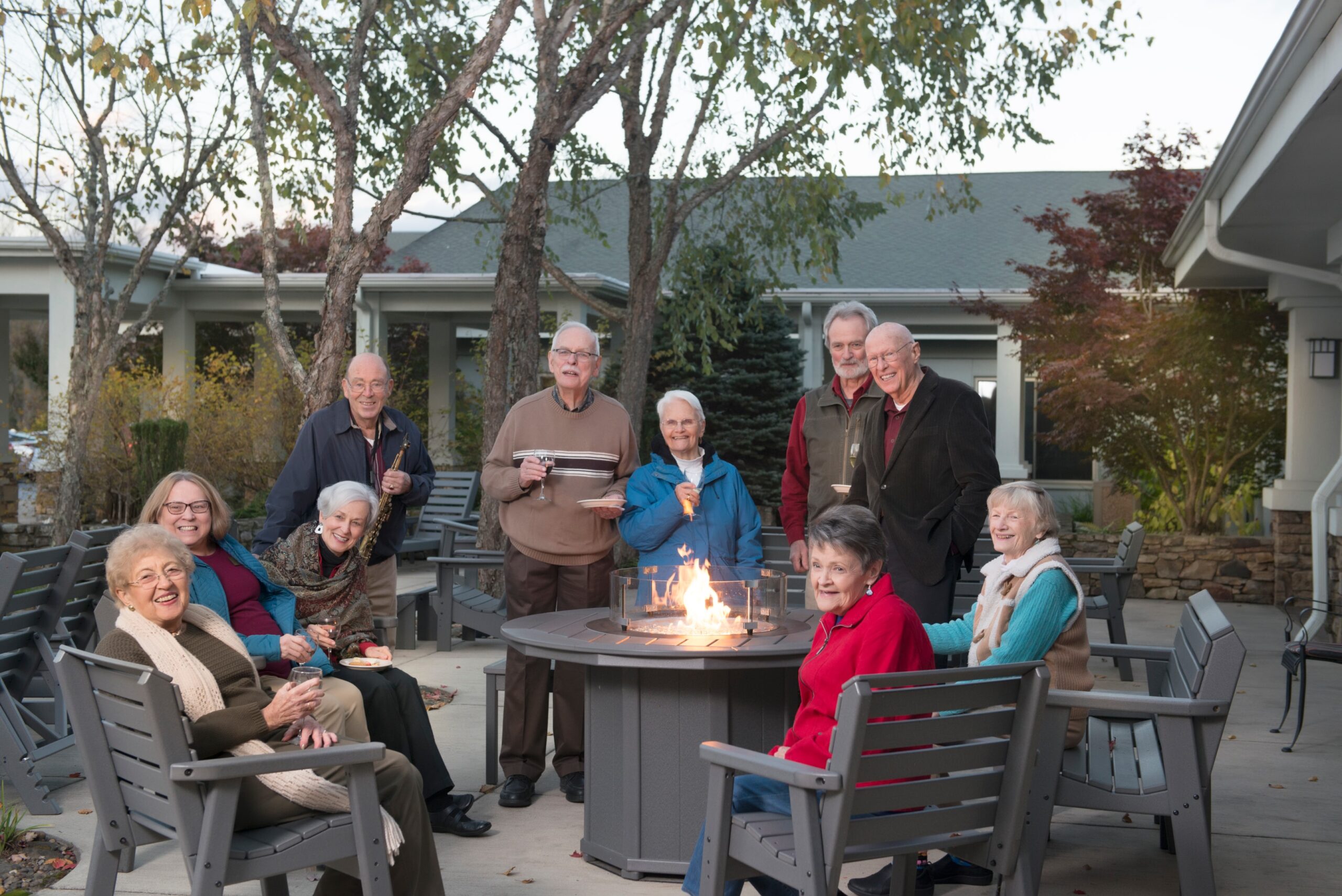
For most people, one of the big draws of active adult communities is the vibrant lifestyle they offer. These neighborhoods are designed with older adults in mind and often come packed with amenities—think golf courses, fitness centers, walking trails, and plenty of social activities to keep things fun and engaging. It’s easy to connect with neighbors who are in a similar stage of life, and that sense of community can be incredibly fulfilling. Plus, with a wide range of options available, there’s usually something to fit just about any financial situation.
Health and wellness amenities in Life Plan Communities promote an active lifestyle in active retirement communities. They offer a supportive environment where retirees can enjoy their later years in a retirement community.
Life Plan Communities: Comprehensive Care

Life Plan Communities, or continuing care retirement communities (CCRCs), offer a structured approach to retirement living. They are designed to provide varying levels of care and support as residents age. These communities offer peace of mind with a continuum of healthcare services as needs change. CCRCs facilitate seamless transitions from independent to assisted living as care needs evolve.
Life Plan Communities, also known as Continuing Care Retirement Communities, offer a full spectrum of care all in one place—making them a smart choice for older adults who want to plan ahead. These communities typically include independent living options along with access to assisted living, memory care, and even nursing home services if needed down the road.
Homes are often thoughtfully designed with aging in mind, featuring wide doorways and other accessible features. On top of that, many Life Plan Communities offer transportation services to help residents stay active and connected without the worry of driving. It’s a comforting blend of independence and support, all under one roof.
Monthly fees may increase or stay the same as care needs grow, depending on community policies. Some communities offer assistance programs for residents who can no longer afford the monthly charge.
Residents can tailor their schedules without fixed routines, promoting independence.
How to Start Your Search
When you’re thinking about relocating for retirement, having the right resources can make all the difference. Online directories focused on senior living are a great place to start—they help narrow down options and save time. Reading reviews from current or former residents can also give you a real feel for what life is like in different communities. Local community centers often have helpful information too.
And don’t forget to check out Carolina Living Choices, both the website and our print magazine—they’re packed with trusted listings, articles, and advice tailored specifically for seniors and their families exploring retirement living in Western North Carolina.
A senior living advisor can tailor the search to your specific needs and preferences. This personalized approach makes finding the perfect retirement home more manageable and less overwhelming.
Summary
In conclusion, finding the perfect retirement home requires careful consideration of various housing options, financial aspects, and personal preferences. From aging in place to exploring independent living communities, each choice offers unique benefits that can significantly enhance your retirement years.
By understanding the different options and planning accordingly, you can ensure a comfortable and fulfilling retirement. Embrace this new chapter with confidence and excitement, knowing that the perfect home is within reach.
Frequently Asked Questions
What are the benefits of aging in place?
Aging in place offers seniors the benefit of staying in familiar surroundings, promoting their independence and comfort while enhancing safety through necessary home modifications. This approach not only fosters emotional well-being but also allows for continuity in social connections and daily routines.
Why should I consider downsizing to a smaller home?
Downsizing to a smaller home can lead to lower maintenance costs and mortgage payments, allowing for a more manageable lifestyle and potential savings. This choice offers a practical solution for those seeking financial relief and simplicity.
What amenities are typically available in independent living communities?
Independent living communities typically offer amenities such as security, fitness facilities, dining options, and services like meal preparation and laundry, all designed to foster a convenient and active lifestyle.
How can I finance my retirement home?
You can finance your retirement home through various means such as selling your current home, obtaining a reverse mortgage, pursuing government-backed loans, or leveraging home equity lines of credit. These options can help you achieve your goal of securing a comfortable living situation in retirement.
What factors should I consider when choosing a retirement location?
Consider accessibility to healthcare, cost of living, proximity to family and friends, available local amenities, and your climate preferences when choosing a retirement location. Prioritizing these factors will help ensure a comfortable and fulfilling retirement.


